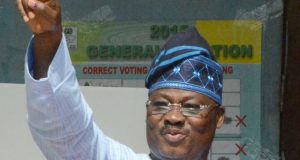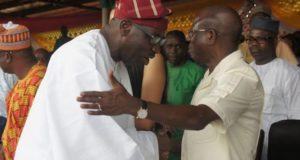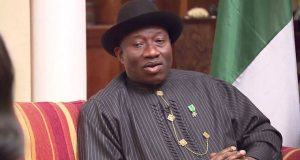
Nigeria gained independence in 1960. Till date, the country has been ruled by 14 presidents and heads of state. A breakdown of the history of leadership since the chord of colonialism was severed 52 years ago shows that our affairs have been run by eight military rulers and six civilians. The demographics of power play between the political and military class reveal that the soldiers were around for 29 years while the civilians have held forte for 23 years. We are currently under a democracy; one that has lasted since 1999, the longest in the country’s chequered history. Who has been the most successful Nigerian leader since independence? Given the crisis of leadership that has stunted the potential of the country, has any leader transcended the mediocrity or shown any flash of brilliance?
The fate of our country today has been variously ascribed to the failure of leadership. This, of course, is an affirmation of Prof. Chinua Achebe’s assertion in his seminal work, The Trouble With Nigeria. It is also a known fact that no nation can rise above the quality of its leadership. Many have also pointed to followership as critical to the success of any nation. But a leader has to lead and inspire the citizens. In this wise, the root of our underdevelopment today, I dare say, can be traced to the absence of visionary leadership. If the country has not risen beyond the mediocrity of leadership provided by its leaders in the 52 years of sovereignty, then it can safely be argued that no Nigerian leader, past or present, dead or alive, can lay claim to being successful. The question of who has been the most successful leader in a country bereft of leadership is ironical-may be an absurdity. But this question has become relevant. In recent times, one has noted with dismay how past leaders often do comparisons of their tenure with the present in their bid to re-write history. Many of them wish they could come back to right the wrongs or simply complete the rout. For example, former President Olusegun Obasanjo who ruled both as a military ruler and civilian president is currently engaged in a war of words with President Goodluck Jonathan. His former aides have also continued to paint a glowing picture of his eight-year tenure. In his first term as a democratically elected president, his public statements were often characterised with lamentation about how the Nigerian situation had deteriorated so abysmally in the two decades since he left power in 1979.
But Obasanjo is not alone in the attempt to launder the image of his tenure. The efforts by former rulers to demonise their predecessors have never gone unnoticed by their victims. For example, the former military dictator, Gen. Ibrahim Babangida, has never taken kindly to such portrayal of his person as one that institutionalised corruption or that he failed to build a single power plant in his eight years in power. In fact, the man who famously referred to himself as the �Evil genius” and was branded a Maradona for raising deceit and inconsistency of policy in government to statecraft was so pained that he re-contested the Presidency in 2007. But he miscalculated. His ambition to rule the country died with his ill-advised Eagle Square declaration.� He also considers himself successful and has resisted all attempts to blame him for the nation’s woes.
In assessing the success of Nigerian leaders or the absence of it, it will be worthy to point out that the country has never been this bad. First generation Nigerians often reminisced the �good old days”. The period immediately after independence; the first generation of Nigerian leaders has been credited with laying the foundation for the country. That period in history, the Tafawa Balewa era, is the Nigerian Utopia. Ironically, historians have also blamed the collapse of the First Republic on the same leaders for not being able to prevent the anarchy that led to the first coup d’état. The hopes of a bright future soon became a nightmarish dream. The leaders, they note, chose to champion ethnic interest.� In 1966, the regime of Maj.-Gen. J.T.U. Aguiyi Ironsi was cut short by a bloody coup’detat before he could assert his leadership. Note that the political environment that existed during Ironsi’s brief regime was inimical to development. Events soon spun out of control and the commander-in -chief lost his life in a period that would remain the bloodiest in Nigeria’s history. The Yakubu Gowon regime existed in the shadows of the civil war that pitched the Igbo ethnic group against the Federal Government. Thus, Gowon can be assessed in the way he prosecuted the war. Was he a successful war leader? Was he fair to all concerned in the way he handled the aftermath of the war? At the same time, however, Gowon has also been praised for building critical infrastructure especially in Lagos, then federal capital territory. But given the resources available at the time, did Gowon maximise available funds judiciously to set the country on the path of progress? That is the question begging for answer.
The Gen. Murtala Muhammed regime was credited to have reformed the Nigerian civil service said to be deeply steeped in corruption. But he, however, did not survive the coup’ detat which terminated his government’s bold stance against a notoriously corrupt Nigerian state.� Obasanjo’s regime, which succeeded it, was noted for its efforts in agriculture through the Operation Feed the Nation project. In an era when the military dominated our socio-political life, Obasanjo earned worldwide applause for handing over power to President Shehu Shagari.
However, the Second Republic is adjudged to be the most profligate. The corrupt depiction of the Shagari administration has often overshadowed its achievements, if there was any. After its toppling in 1983, the dizzying succession of attempted and successful coup’ detats set the country on the spin of bloodletting and stagnation. The single most talked-about achievement of the Muhammadu Buhari regime was its War Against Indiscipline, an attempt at re-ordering the moral compass of Nigerians. The eight years of Babangida, as noted earlier, however added a new dimension to military incursion into governance as we know it. The country became a huge laboratory for the experimentation of policies including the International Monetary Fund’s Structural Adjustment Programme. Many attempts at handing over power to civilians were deliberately truncated through an endless transition. He eventually conducted an election which the late MKO Abiola won on the platform of the defunct Social Democratic Party. He, unfortunately, annulled the election. The scar of that action on the nation has yet to heal. He was later forced out. Yet, Babangida considers his regime successful. Was he? Chief Earnest Shonekan, the taciturn technocrat who headed the Interim National Government did not stay long. He was consumed by the intrigues of military power play. The late Sani Abacha’s regime was defined by its brutality, hit squad, incarceration of Abiola and earning Nigeria the status of a Pariah state. He also schemed to become a life president. Years after his demise, funds stolen by his government are still being repatriated. Gen. Abdusalami Abubakar organised the election that ushered in the Fourth Republic. But Abiola died under his watch.
The jury is still out on Obasanjo’s eight-year stay in power. The late President Umaru Yar’Adua touted the rule law. But death snatched him away too soon. President Jonathan has promised to be the most successful Nigeria president ever when his tenure ends in 2015. Of all this lot, who then is the most successful Nigeria leader?
![DJ Baddo – All Of Me Remix ft John Legend [AuDio]](https://www.naijavibe.net/wp-content/uploads/wordpress-popular-posts/94409-featured-40x40.jpg) DJ Baddo – All Of Me Remix ft John Legend [AuDio]
DJ Baddo – All Of Me Remix ft John Legend [AuDio]  Dj Kamol – Crazy Gyration ft Skailey Normal [AuDio]
Dj Kamol – Crazy Gyration ft Skailey Normal [AuDio] ![Mr. Charis - All Back ft Zouwrah [AuDio]](https://www.naijavibe.net/wp-content/uploads/wordpress-popular-posts/67331-featured-40x40.jpg) Mr. Charis – All Back ft Zouwrah [AuDio]
Mr. Charis – All Back ft Zouwrah [AuDio] ![DJ Enimoney - Shaku Shaku Therapy [MixTape]](https://www.naijavibe.net/wp-content/uploads/wordpress-popular-posts/155494-featured-40x40.jpg) DJ Enimoney – Shaku Shaku Therapy [MixTape]
DJ Enimoney – Shaku Shaku Therapy [MixTape] ![Yung6ix – I Pray ft Oritse Femi [AuDio]](https://www.naijavibe.net/wp-content/uploads/wordpress-popular-posts/163012-featured-40x40.jpeg) Yung6ix – I Pray ft Oritse Femi [AuDio]
Yung6ix – I Pray ft Oritse Femi [AuDio] ![Iyanya – Credit ft Don Jazzy [AuDio]](https://www.naijavibe.net/wp-content/uploads/wordpress-popular-posts/167713-featured-40x40.jpg) Iyanya – Credit ft Don Jazzy [AuDio]
Iyanya – Credit ft Don Jazzy [AuDio] ![Kolasoul - All Of Me [AuDio]](https://www.naijavibe.net/wp-content/uploads/wordpress-popular-posts/40876-featured-40x40.jpg) Kolasoul – All Of Me [AuDio]
Kolasoul – All Of Me [AuDio] ![Big C - Obimo ft Starface [AuDio]](https://www.naijavibe.net/wp-content/uploads/wordpress-popular-posts/19188-featured-40x40.jpeg) Big C – Obimo ft Starface [AuDio]
Big C – Obimo ft Starface [AuDio]  Victony, Don Toliver & Rema – Soweto
Victony, Don Toliver & Rema – Soweto  NaijaVibe at 10 MixTape
NaijaVibe at 10 MixTape  Tekno – Freetown
Tekno – Freetown  Libianca – People Remix ft Ayra Starr & Omah Lay
Libianca – People Remix ft Ayra Starr & Omah Lay
 NaijaVibe NaijaVibe | Download Latest Nigerian Music & Mp3s
NaijaVibe NaijaVibe | Download Latest Nigerian Music & Mp3s




